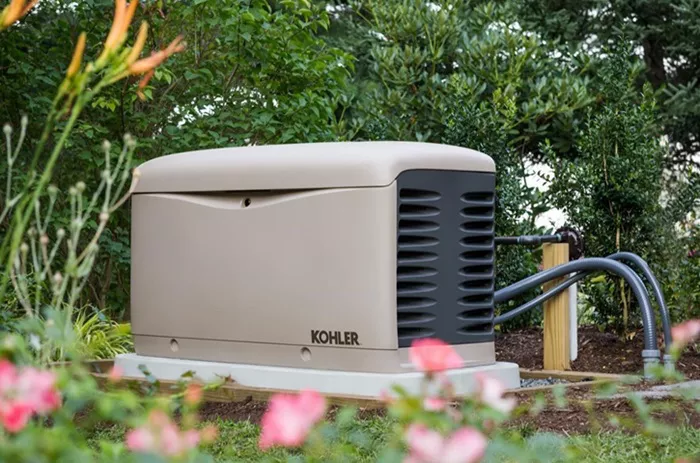When a power outage strikes, a reliable standby generator can keep your home running smoothly. But with so many options available, how do you choose the best one? This guide will help you understand the key factors in selecting a home standby generator, including power capacity, fuel type, installation requirements, and top models on the market.
How Does a Standby Generator Work?
A standby generator is a backup power system that automatically turns on when your main electricity supply fails. Unlike portable generators, standby units are permanently installed and connected to your home’s electrical panel. Here’s how they work:
Automatic Transfer Switch (ATS) : When the power goes out, the ATS detects the interruption and signals the generator to start.
Power Generation : The generator begins supplying electricity to your home within seconds.
Return to Grid Power : Once utility power is restored, the ATS switches back, and the generator shuts off.
Standby generators run on different fuel sources, including natural gas, propane, or diesel. The best choice depends on your home’s needs and local fuel availability.
Key Factors to Consider When Choosing a Standby Generator
Power Capacity (Wattage)
The size of your generator determines how many appliances and systems it can support. Generators are rated in kilowatts (kW), and homes typically need between 7 kW to 22 kW, depending on usage.
Small Homes (7-10 kW) : Powers essentials like lights, fridge, and a few outlets.
Medium Homes (12-18 kW) : Supports HVAC systems, well pumps, and major appliances.
Large Homes (20+ kW) : Full-house coverage, including multiple AC units and high-power devices.
Fuel Type
Standby generators use different fuel sources, each with pros and cons:
Natural Gas : Convenient if you have a gas line; no refueling needed but may be less efficient in extreme cold.
Propane : Stores well and burns cleanly but requires a large tank.
Diesel : Highly efficient and long-lasting but noisy and requires maintenance.
Noise Levels
Generators produce noise, measured in decibels (dB). Quieter models (around 60-70 dB) are ideal for residential areas. Inverter generators are typically quieter than conventional models.
Installation & Maintenance
Professional installation is required for standby generators. Key considerations:
Location : Must be placed on a concrete pad, away from windows and vents.
Permits : Check local regulations for placement and noise restrictions.
Maintenance : Regular oil changes, battery checks, and fuel stabilizers (for propane/diesel) are necessary.
Top Standby Generators for Homes in 2024
Here are some of the best standby generators available today:
Generac 22kW Guardian Series
Power: 22,000 watts
Fuel: Natural gas or propane
Features: Wi-Fi monitoring, 5-year warranty, quiet operation (67 dB)
Best For: Large homes with high power demands
Kohler 20kW RESIDENTIAL
Power: 20,000 watts
Fuel: Natural gas or propane
Features: Durable steel enclosure, smart diagnostics, weather-resistant
Best For: Reliable whole-house backup
Briggs & Stratton 12kW Home Generator
Power: 12,000 watts
Fuel: Natural gas or propane
Features: Affordable, compact design, automatic weekly self-tests
Best For: Mid-sized homes needing essential backup
Cummins QuietConnect 14kW
Power: 14,000 watts
Fuel: Natural gas or propane
Features: Ultra-quiet (64 dB), remote monitoring, robust engine
Best For: Noise-sensitive neighborhoods
How to Maintain Your Standby Generator
To ensure long-term reliability:
Run Monthly Tests : Most generators have an automatic exercise mode.
Change Oil Annually : Follow manufacturer guidelines.
Inspect Battery & Connections : Prevent corrosion and ensure quick startups.
Keep Fuel Fresh : Use stabilizers for propane/diesel models.
Conclusion
The best standby generator for your home depends on power needs, fuel availability, and budget. Generac and Kohler are top brands for reliability, while Briggs & Stratton and Cummins offer great mid-range options. Always consult an electrician for proper sizing and installation.
By investing in a quality standby generator, you can avoid disruptions and keep your home powered during emergencies. Whether it’s a storm-induced outage or a grid failure, a backup generator provides peace of mind and security for your family.
Would you like recommendations based on your specific home setup? Let us know in the comments!

